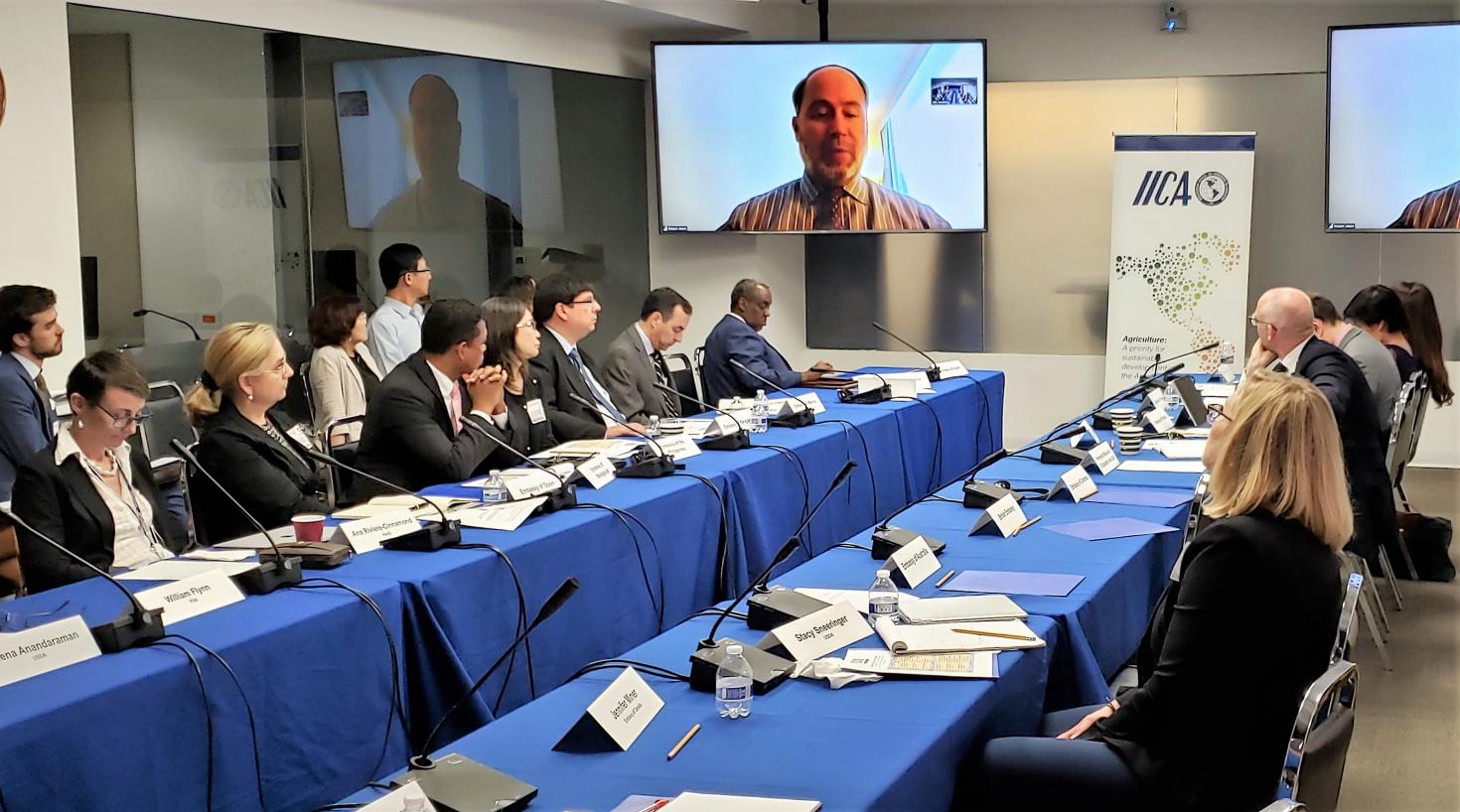IICA hosted a roundtable discussion related to sanitary and phytosanitary negotiations, which included the participation of representatives of the international agrifood community and importers from Canada, the European Union and the United States.

Washington D.C., 23 July 2019 (IICA). For the second consecutive year, the Inter-American Institute for Cooperation on Agriculture (IICA) organized a roundtable discussion on sanitary and phytosanitary negotiations geared towards the international agrifood community based in Washington, D.C. Participants discussed antimicrobial resistance (AMR) and its impact on trade.
The event brought together 35 representatives of diplomatic missions and international organizations, including major agrifood importers such as Canada, the European Union and the United States, who were provided with up-to-date information on policies and studies related to AMR.
Antimicrobial resistance occurs when genetic changes cause microorganisms (bacteria, fungus, and viruses) to develop resistance to drugs that were previously effective in eliminating them, such as antibiotics, fungicides and antiviral drugs.
It is also a worldwide problem that affects human and animal health, as well as the environment, and therefore requires a comprehensive and multisectoral approach, in which the agriculture sector plays a key role.
“Antimicrobial resistance is an important and relevant issue today that affects policies and can hamper trade. Experts in this topic presented their points of view and shared information with the international community in order to foster constructive dialogue,” explained Horrys Friaca, International Specialist in Agricultural Health and Food Safety (AHFS) at the IICA Delegation in the United States.
During the event, the Pan American Health Organization (PAHO) provided an update on the status of the implementation of AMR policies in Latin America and the Caribbean.
Specialist Stacy Sneeringer of the Economic Research Service (ERS) of the U.S. Department of Agriculture (USDA) presented her most recent AMR study entitled “The U.S. and EU Animal Pharmaceutical Industries in the Age of Antibiotic Resistance.”
The roundtable participants also learned about the manner in which this issue is being addressed within Codex Alimentarius, a benchmark in food safety standards and an entity that is recognized by the World Trade Organization (WTO).
Robert Ahern, Manager of the AHFS Program at IICA, described the technical cooperation actions underway in the region to minimize the impact of AMR, through the development of regional strategies and national surveillance plans to prevent and control this problem in products of animal origin.
The next roundtable on sanitary and phytosanitary negotiations will be held in September and will focus on African swine fever and gene editing, as agreed upon by the participants.
More information:
Horrys Friaca, International Specialist in AHFS at IICA











